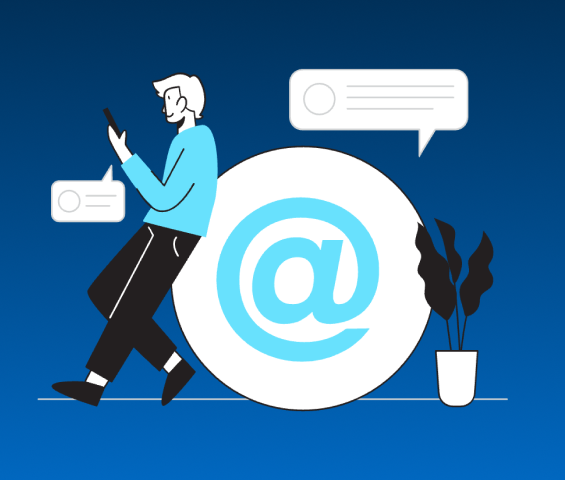How Long After a Job Interview Does It Take to Hear Back?
Quick answer
Most job offers arrive 2-4 weeks after the final interview. Small companies typically respond within 48 hours to 1 week, while large corporations may take 1-2 months. 44% of candidates receive offers within 2 weeks post-interview.
The waiting period after a job interview directly depends on company size and position level. Small companies with under 100 employees often make decisions within 24-48 hours, while mid-sized companies typically take 1-2 weeks. Large corporations generally need 2-4 weeks for their full hiring process, and executive positions can extend to 4-8 weeks.
Several key factors impact response times during the hiring process. Background checks and reference verification can add significant delays, especially for senior roles. Internal approval processes vary dramatically between organizations, with larger companies requiring multiple departments to sign off on new hires. Seasonal hiring cycles and department budget approvals also play crucial roles in timing.
Timeline Breakdown
Understanding typical recruitment cycles helps set realistic expectations during your job search. Most hiring managers aim to fill positions within one month of interviews beginning.
Small Company Timelines (Under 100 Employees)
Decision makers at small companies often move quickly, with 67% making offers within three business days after final interviews. Direct communication channels and fewer approval layers enable this rapid response.
Mid-Size Company Process (100-1000 Employees)
The average wait time extends to 1-2 weeks with mid-sized organizations. This timeline typically includes department head approval, HR processing, and basic background verification. Expect an initial response about your status within 5 business days.
Corporate Hiring Standards (1000+ Employees)
Large corporations average 2-4 weeks from final interview to offer, though this can extend to six weeks for specialized positions. Multiple approval stages, comprehensive background checks, and structured salary bands contribute to longer timelines.
Impacting Factors
Several elements can extend or shorten your wait time. Position level significantly affects the timeline - entry-level roles typically process faster than management positions. Current market conditions also play a role, with competitive industries often moving quickly to secure top talent.
The hiring season impacts response times, with January-February and September-October showing faster turnaround. Companies actively hiring during these peak periods often streamline their processes to capture available talent.
Remote Position Considerations:
Time zone coordination for multiple interviews
Digital document processing requirements
Virtual team approval processes
When to Follow Up
Follow-up timing varies based on the company's indicated timeline. If no timeline was provided, send your first follow-up 5-7 business days after the interview.
Recommended Follow-up Schedule:
Thank you email: Within 24 hours of interview
Initial follow-up: 5-7 business days after interview
Second follow-up: 10-14 days after initial follow-up
Final check: One week after second follow-up
Professional Follow-up Example
Hello [Hiring Manager Name],
I hope you're well. I'm following up on our interview for [Position] from [Date]. I remain very interested in the opportunity and wanted to check on the status of your decision timeline.
Best regards, [Your Name]
Warning Signs vs. Normal Delays
Understanding the difference between normal delays and potential red flags helps manage your job search effectively.
Normal Delays Include:
Request for additional references
Scheduling follow-up interviews
Questions about start date availability
Updates about internal approval processes
Potential Red Flags:
No response to multiple follow-ups
Repeatedly pushed back decision dates
Unclear responses about timeline
Complete communication silence for 3+ weeks
Next Steps While Waiting
Continue your job search until you have a written offer. 87% of successful candidates interviewed for multiple positions before accepting their final role.
Maintain Professional Momentum:
Keep applying to new positions
Update your professional profiles
Network within your industry
Prepare for salary negotiations
Tailoring your resume for each job is key to standing out. Our Resume Builder makes it easy with customizable templates and expert guidance, helping you create a polished resume that highlights what matters most.
Stay Organized During Your Job Search
Managing multiple job applications, interviews, and follow-ups can quickly become overwhelming. Staying organized ensures you don’t miss important deadlines or lose track of opportunities.
Use our Job Tracker to keep all your applications in one place. Track submission dates, interview schedules, and follow-up reminders with ease. Staying on top of your job search helps you focus on presenting your best self to employers, without the stress of juggling details.
Frequently Asked Questions
Should I accept another job while waiting?
Yes, if you receive a solid offer from another company, you can accept it. 76% of hiring managers understand candidates have multiple applications in progress. However, inform other potential employers promptly about your decision.
What if the company misses their stated timeline?
Send one follow-up email after 2-3 business days beyond their stated timeline. Companies miss initial timelines in 40% of cases, often due to internal factors. If another week passes without response, send a final inquiry.
Does a longer wait mean I didn't get the job?
Not necessarily. 35% of candidates who waited 4+ weeks still received offers. Complex roles, senior positions, and large corporations commonly have extended hiring processes regardless of candidate status.
Should I mention competing offers?
Only mention other offers if they're concrete and in writing. 64% of hiring managers report that premature mention of potential offers can negatively impact candidacy. If you have a genuine offer with a deadline, communicate this professionally:
Sample Timeline Update: "While [Company] remains my top choice, I've received another offer requiring response by [Date]. I'd greatly appreciate any timeline updates you can provide."
Key Takeaways
Average wait: 2-4 weeks
Small companies: 48 hours - 1 week
Large corporations: 2-6 weeks
Peak hiring seasons: January-February, September-October
Follow up professionally every 5-7 business days
Continue job searching until receiving written offer

